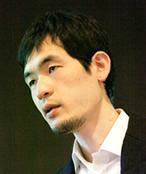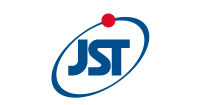Speakers
S1-1
Dr. Jeffrey Salmon

Jeffrey Salmon has held senior positions within the Department of Energy (DOE) since 2001, first as Senior Policy Advisor and Senior Speechwriter to the Secretary and later in the Office of Science as Chief of Staff and the Office of the Under Secretary for Science as Associate Under Secretary. He is currently Deputy Director for Resource Management in DOE’s Office of Science and is responsible for developing and representing DOE’s policy and implementation of public access to scholarly publications resulting from DOE R&D funding. Among other functions, he oversees the Office of Scientific and Technical Information, which operates web-based systems and gateways for public access to DOE R&D results. Prior to joining the Department of Energy, he served in the private sector. Dr. Salmon was Senior Speechwriter to the Secretary of Defense from 1985-1991 and was a Senior Fellow at the National Defense University. He has served on the staff of two members of Congress and was research director for a PBS documentary. He received his PhD in World Politics from the Catholic University of America.
S1-2
Dr. Chris Greer
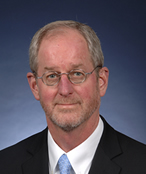
Dr. Chris Greer is NIST Senior Executive for Cyber Physical Systems and National Coordinator for Smart Grid Interoperability. In these positions, he is responsible for strategic planning, program implementation and coordination with partners across the public and private sectors. Prior to joining NIST, Dr. Greer served as Assistant Director for Information Technology R&D in the White House Office of Science and Technology Policy and Cybersecurity Liaison to the National Security Staff. His responsibilities there included networking and information technology research and development, cybersecurity, and digital scientific data access. Dr. Greer has also served as Director of the National Coordination Office for the Federal Networking and Information Technology Research and Development (NITRD) Program. This program coordinates IT R&D investments across the Federal government.
S1-3
Dr. Wolfram Horstmann
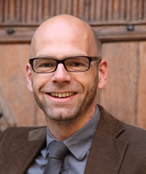
Employment History
- 2014–date. Director / University Librarian, State and University Library, Göttingen University
- 2012–2014. Associate Director, Bodleian Libraries, University of Oxford
- 2007–2011. CIO (Chief Information Officer) Bielefeld University, Germany
- 2006–2007. EU Project Manager, State and University Library, Göttingen University
- 2005–2006. Head of Publishing, Academic Library Center hbz, Cologne, Germany
- 1998–2004. Research Assistant in Neurobiology and manager of projects on “Educational Simulations in Neural and Cognitive Sciences” (examples) Bielefeld University, Germany.
Education
- 2002–2004. Dr. phil. nat., Faculty of Biology, Bielefeld University, Germany. Doctoral Thesis: "Explaining Brains by Simulation"
- 1993–1998. Diploma in Biology, Faculty of Biology, Bielefeld University, Germany. Specialization: Computational Neuroscience
Committees, Boards and Professional Groups
- since 2013: Nature Scientific Data Advisory Panel
- since 2013: LIBER Steering Group Scholarly Communication and Research Infrastructure
- since 2011: EMBL/EBI, Literature Services Advisory Board, European Bioinformatics Institute, Cambridge, UK
- since 2010: appointed DFG-Committee-Member „Electronic Publishing“ (Deutsche Forschungsgemeinschaft, German Research Foundation)
- since 2010: „Independent Expert“ of the European Commission (DG INFSO/Connect)
- 2010–2011: JISC UK, Repository & Curation Service Infrastructure Oversight Group
- Since 2010: Steering Committee „Open Repositories“, Programme Director in 2010
- since 2006: multiple activities for the Knowledge Exchange Initiative between DEFF (Denmark), DFG (Germany), JISC (UK) and SURF (The Netherlands)
- Conference Committees, e.g. ElPub 2008/9/10/11, European Conference of Digital Libraries, ECDL 2008/9: TPDL 2011, International Bielefeld Conference 2009/2012
Awards
- 2009: German Library HiTech Price (Emerald Publishing)
Seminars and Courses
- 2011: Seminar „Explorations Towards Research Informatics“
- 2008-2011: Colloquium Knowledge Infrastructure (Kolloquium Wissensinfrastruktur)
- 2001-2004: Courses on Computational Neuroscience
Selected Projects
- OpenAIRE - Open Access Infrastructure for Research in Europe (EU)
- PubLister - Personal Publication Lists as an Institutional Service; now PUB (DFG)
- SFB882 - eScience Infrastructure for the collaborative research centre SFB882 “From Heterogeneity to Inequality” (DFG)
- PEER - Publishing and the European Ecology of Research (EU)
- Journals of the Enlightenment – Digitization Project (new phase just started, DFG)
- AutoOAI - Automatic Enrichment of OAI Metadata (DFG)
S1-4
Dr. Mustapha Mokrane

Executive Director, ICSU World Data System International Programme Office
Since March 2012, Mustapha Mokrane is the first Executive Director of the ICSU-WDS International Programme Office. Previously, he worked between 2009 and 2012 at the International Council for Science (ICSU) as Science and Information Technology Officer in charge of the coordination of ICSU's Scientific Data and Information activities and the liaison with its partners. He was also responsible for the information technology related activities within ICSU before 2003 and 2009. After moving from Algeria, his home country, he trained as molecular biologist in Marseille, France. Using transgenesis and microarrays technologies, he developed a drosophila model to elucidate the role of a gene involved in human cardiomyopathies. His scientific background covers genetics and bioinformatics and he developed a strong interest for scientific data and information challenges. He holds a Ph.D. in Molecular Biology from the Aix-Marseille University.
S1-5
Dr. Yasuhiro Murayama
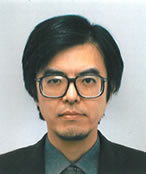
Dr. Yasuhiro Murayama is the director of Integrated Science Data System Research Laboratory of National Institute of Information and Communications Technology (NICT), Japan. Also he is an ex officio member of ICSU-World Data System Scientific Committee, as well as in charge of hosting International Programme Office (IPO) of ICSU-WDS in NICT, and the chief secretary of the WDS National Committee under Science Council of Japan. He is also an Executive Board member of Japan Geoscience Union (JpGU) and chair of JpGU Committee of Information System since 2014, and a Science Board member of JpGU Atmospheric and Hydrological Science Section since 2010. From 1999-2006 he had been a leader of the Japan-side group of the US-Japan joint program of Alaskan middle-upper atmosphere observations with Geophysical Institute of University of Alaska, and then he was appointed as a group leader of NICT's atmospheric remote sensing area in 2008-2011. He was appointed as the Visiting Professor of Research Institute of Sustainable Humanospehre, Kyoto University in April 2012-March 2013, and is a member of Review Board of National Antarctic Expedition Program, of National Institute of Polar Research since 2011. He was awarded by Japan's Ministry of Education, Culture, Sports, Science and Technology in 2007, for Internet use of high-quality Auroral image observation and live image distribution. Dr. Murayama received his Ph.D. from Kyoto University in 1993 studying atmospheric dynamics using radar/lidar remote-sensing and sounding rocket techniques.
S2-1
Mr. Alex D Wade
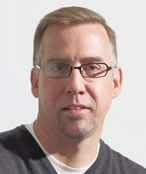
Director, Scholarly Communication
Microsoft Research
Alex Wade is Director for Scholarly Communication at Microsoft Research, where he oversees a portfolio of research-focused products and services. Alex holds a Bachelor's degree in Philosophy from U.C. Berkeley, and a Masters of Librarianship degree from the University of Washington. During his career at Microsoft, Alex has managed Microsoft’s internal corporate search and taxonomy management services, and has served as Senior Program Manager for Windows Search for the Windows Vista and Windows 7 releases. Prior to joining Microsoft, Alex was Systems Librarian at the University of Washington, and held technical library positions at the University of Michigan and the University of California at Berkeley. Alex is currently responsible for the Azure Machine Learning for Research program as well as Microsoft Academic, a service designed to enable rich entity-based discovery and navigation of researchers, topics, conferences, and publications.
S2-2
Mr. Katsuji Matsumura
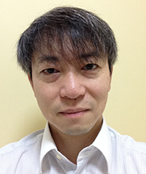
Education Background:
- Mar. 1996 Master's degree in Physics, Saitama University
Job Experience:
- Apr. 1996 Japan Information Center for Science and Technology (JICST),
the predecessor of JST. - Apr. 2001 Ministry of Education, Culture, Sports, Science and Technology (MEXT).
- Apr. 2003 Japan Science and Technology Agency (JST).
S2-3
Dr. Ying Li
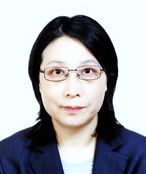
Ying LI, senior researcher of ISTIC, received her B.A. in Polymer Engineering from China, her M.A. in Information Processing from University of Library and Information Science of Japan, Ph.D. in Information System from University of Tsukuba of Japan. She worked at HEBEI University of Technology in TIANJIN as assistant from 1985 through 1987, at Hebei University of Science and Technology in Shijiazhuang as a lecturer from 1987 through 1995. She also was Visiting Researcher at University of Library and Information Science of Japan from 1995 through 1998. She was a system architect from 2000-2002, and a consultant from 2003-2007 in Japan, and an information analysts from 2008-2009 in China.
Her fields of interest include knowledge engineering, natural language processing, and digital library technology. Her current research focuses on domain ontology construction, Chinese-English-Japanese machine translation, enterprise innovation platform, patent analysis, institutional repository, and digital identification, etc. She is the associate editor-in-chief of Digital Library Forum and Technology Intelligence Engineering, a program committee and secretary general for the International Workshop on Data-Intensive Knowledge and Intelligence and (DIKI), and the International Workshop on Patent Mining (PaMin).
Publication
RECENT Books
- Chinese Scientific & Technical Vocabulary System- Natural Disaster Monitoring and
Emergency Management (with Yunliang Zhang et al, 2014)
- Chinese Scientific & Technical Vocabulary System-New Energy Vehicles (with Dr. Yunliang Zhang et al, 2012)
- DITA Best Practices: A Roadmap for Writing, Editing, and Architecting in DITA (Chinese Translation, 2012)
Selected Recent ARTICLES
- A Knowledge System Based on Handle System and China DOIs. ICIC Express Letters, 5, 1: 73-81. 2014.
- China Academic Library and Information System. Journal of Information Processing and Management.56,12, 842-851.2014.
- Research and Development of a Financial e-Training System Based on Knowledge Discovery Technology. ICIC Express Letters, 4, 4: 1007-1014. 2013.
- International Cooperation for Technology Innovation Services and DOI Applications – Review for "the 3rd Korea-China-Japan Joint Seminar". Digital Library Forum, 8:50-60.2012
- Design of a New Knowledge System Framework and Its Application Study Based on the Concept of "Semantic Topicized Model”. Digital Library Forum, 4:24-27.2012
- Application Research of Topic Maps and Ontology in Building an Knowledgeable Financial Training System. Digital Library Forum, 4:17-23.2012
- Mechanism Study of Big Data Smart-analytics System Oriented Enterprise Innovation Service. Digital Library Forum, 11:24-32.2012
- The Construction of OA Platform with Integration of Multi-national OA Journals Resources and Its DRM Function, ICSTI Annual Conference, 2011.
- Federated Content Rights Management for Research and Academic Publications Using the Handle System. D-Lib Magazine, 2.2010
- National Science and Technology Digital Library in China--From Positioning to the Latest Development (with Xiaodong Qiao). Journal Information Processing and Manage, 53, 5:256-265.2010.
- Academic Information Retrieval System Based on “Structured Digial Object”. Journal of Guangxi Normal University:Natural Science Edition,28,1:82-87.2010.
Recent projects
- The National Natural Science Foundation of China
- The National Key Technology R&D Program
- International S&T Cooperation Program of Sino-Japan
S2-4
Prof. Ken Kurokawa
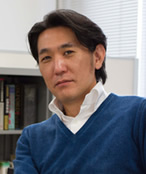
Title:
Professor / Vice-president (WPI ELSI), Ph.D.,
Affiliation:
Earth-Life Science Institute (WPI ELSI), Tokyo Institute of Technology, M6-3 2-12-1 Ookayama, Meguro-ku, Tokyo 152-8550 Japan
Education:
1993 B.Sc., Tohoku University
1995 M.Sc., Tohoku University
1998 Ph.D., Osaka University
Professional Career:
1998-2001 Post-Doctoral Fellow, Research Institute for Microbial Diseases, Osaka University
2001-2004 Assistant Professor, Research Institute for Microbial Diseases, Osaka University
2001-2004 Assistant Professor, Genome Information Research Center, Osaka University
2004-2008 Associate Professor, Graduate School of Information Science, Nara Institute of Science and Technology
2008-2012 Professor, Graduate school of Bioscience and Biotechnology, Department of Biological Information, Tokyo Institute of Technology
2012-present Professor / Vice-president, Earth-Life Science Institute, Tokyo Institute of Technology
Major research fields:
1990~ Structural geology and volcanology
1993~ Plate tectonics and volcanic simulation
1995~ Environmental science and microbiology
1998~ Pathogenic bacterial genome science and bioinformatics
2004~ Genomics, Metagenomics and bioinformatics
2012~ Origins of Life, Hadean Bioscience
Achievements and highlights of past research activities
Ken Kurokawa participated in the genome project on emerging pathogenic bacteria Escherichia coli O157:H7, which was the first genome project in Japan, and conducted all analyses as the only bioinformatician to release the complete genome sequence (Hayashi et al., 2001). He performed genome analyses against pathogenic bacteria and published new knowledge mainly focused on bacterial genome evolution (Makino et al., 2003, Nakagawa et al., 2003). In 2007, he conducted large-scale metagenome analysis on human intestinal microbiome of 13 healthy Japanese individuals, including unweaned infant, weaned children and adults, and was defining the overall structure of human intestinal microbiome (Kurokawa et al., 2007). In recent years, he worked on the further development of human metagenomics (Arumugam et al., 2011), and also he started the soil metagenome analysis using a next-generation DNA sequencer. In this work, he integrates all his previous studies and elucidates the correlation between microbes and their surrounding environments at a genomic level with new metagenome informatics (Mori et al., 2011, Suzuki et al., 2012) and the integrated database (http://microbedb.jp/).
S2-5
Dr. Ikki Ohmukai
Ikki Ohmukai is an associate professor at National Institute of Informatics. He received his Ph.D. in Informatics from the Graduate University for Advanced Studies in 2005, under the supervision of Professor Hideaki Takeda. He joined National Institute of Informatics from 2005. From 2010, he is a associate professor at the Graduate University for Advanced Studies. From 2013, he is a visiting professor at Iwate University.
He received the Super Creator Title from Information-technology Promotion Agency in 2004.
His main research interests include the sematic web, social media, open data, scholarly information, and knowledge sharing.
He is a member of Information Processing Society of Japan (IPSJ) and Japanese Society for Artificial Intelligence (JSAI).
S3-1
Dr. Mari Jibu
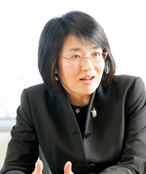
As consultant of Directorate for Science, Technology and Industry of OECD since 2013 and Expert and Deputy Manager of Japan Science and Technology Agency (JST) since 2009. She has been leaded evaluation project, assessing JST’s funding effects. She received M.B.A. from McGill University in 2005 and Ph.D. in Medicine from Okayama University in 1999. Her professional experience includes Assistant for 1987-1994, Lecturer for 1994-2000, and Associate Professor for 2000-2005, Notre Dame Seishin University. She also worked as Senior Research Fellow from 2005 to 2008 at NISTEP, MEXT. Her research interests include Science and Technology Policy and Quantum Brain Dynamics (QBD). She also received the Best Paper Award in 1997 from the 11th European Meeting in Cybernetics and Systems Research.
YOSHIYUKI OSABE
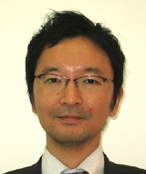
IP Analyst of Directorate for Science, Technology and Industry of OECD since 2013 and Patent Examiner of Japan Patent Office (JPO) since 2006. Bachelor of Pharmaceutical Sciences in University of Tokyo in 2000, Master of Pharmaceutical Sciences in University of Tokyo in 2002, Visiting Scholar in Catholic University of Leuven, Belgium in 2011. He worked as Patent Examiner, dealing with patent application in the fields of Biomedicine, Chemical compound and Drug delivery system, and being in charge of revising Patent Examination Guidelines and lecturing on examination guidelines for staff and students in universities. He was also responsible for planning and executing biotech policy, especially related to industrial research and development in the field of pharmaceutical and tissue engineering, as Assistant Director of Bio Industry Division in Ministry of Economy, Trade, and Industry (METI) from 2011 to 2012. His research interests include Science and Technology Policy in Pharmaceutical and Biotech fields, Government support for SMEs’ activity, Intellectual Property Policy and relationships between IP and economy.
S3-2
Dr. Hong-Woo Chun
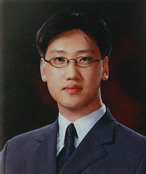
Dr. Hong-Woo Chun is a senior researcher at Korea Institute of Science and Technology Information (KISTI) since 2010. His research interests are Natural Language Processing, Machine Learning, Text Mining and Bioinformatics. He was participated in Virtual Science Brain project and Biological e-Pathway projects. He is currently in charge of the text mining team in Technology Opportunity Discovery (TOD) project in KISTI.
Dr. Hong-Woo Chun worked for Japan Biological Information Research Center (JBIRC), National Institute of Advanced Industrial Science and Technology (AIST) as a postdoctoral researcher from April 2007 to January 2008, and worked for Japan Database Center for Life Science(DBCLS),The Research Organization of Information and Systems (ROIS) as a project researcher from February 2008 to February 2010.
Dr. Hong-Woo Chun received the B.S. and M.Sc. degrees in Computer Science & Engineering from Korea University and the Ph.D. in Graduate School of Information Science and Technology from The University of Tokyo in 2002, 2004, and 2007, respectively.
Selected Publications
- Hong-Woo Chun, Jae-Min Lee, Byoung-Youl Coh, Sung-Wha Hong, Detection of Technology Opportunities from Patents, Advances in Natural and Applied Sciences, To appear, indexed by SCOPUS.
- Sebastian Riedel, Rune Saetre, Hong-Woo Chun, Toshihisa Takagi, Jun'ichi Tsujii, Bio-molecular Event Extraction with Markov Logic, Computational Intelligence, 27(4), 558--582, 2011.
- Hong-woo Chun, Yoshimasa Tsuruoka, Jin-Dong Kim, Rie Shiba, Naoki Nagata, Teruyoshi Hishiki and Jun'ichi Tsujii, Extraction of gene-disease relations from MedLine using domain dictionaries and machine learning. Pacific Symposium on Biocomputing (PSB), pp.4--15, 2006.
S3-3
Dr. Ismael Rafols
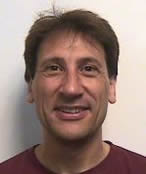
Dr. Ismael Rafols is a science policy analyst at Ingenio (CSIC-UPV) since April 2012 and visiting fellow at SPRU, the University of Sussex, where he worked from 2005 until 2012. He work on research evaluation, both in terms of its scientific and societal quality. In particular, studies mapping and measures of interdisciplinarity and the emergence of new technologies, in particular nano- and biotechnologies with potential medical applications. Ismael combines insights from Science and Innovation Studies with networks analysis (e.g. based on bibliometric and patent data), and interviews. Together with Professors Alan Porter (Georgia Tech) and Loet Leydesdorff (Amsterdam U.) has developed a novel type of maps of science that visualise the knowledge base of organisations such as universities or pharmaceutical firms, or research topics such as gene silencing (RNAi) or bird flu. He serves as Editorial Advisor in the journal Scientometrics.
He has conducted consultancies for the UK’s Royal Commission on Environmental Protection (Nanomaterials governance), SRI (Measuring interdisciplinarity), the OECD Working Party of Nanotechnologies (Mapping the knowledge baseon nanotech) and JETRO (Japanese Ministry of Economy, Trade and Industry, METI; Policies for biotechnology in Europe).
Dr. Rafols received a PhD in biophysics from Tohoku University (Sendai, Japan) and a postdoctoral in nanobiotechnology at Cornell University. In between academic positions, Dr. Rafols has also worked full time for three years on international cooperation in Oxfam and the City Council of Barcelona.
Selected Publicatons
Rafols, I., Leydesdorff, L. O'Hare, A., Nightingale, P. and Stirling, A. (2012) Research Policy. How journal rankings can suppress interdisciplinarity. A comparison of innovation studies and business & management. In press. PDF. Maps. Best Paper Award in the 2011 Atlanta Science and Innovation Conference. See comment in Paul Wouter's blog.
Webpages
- Personal webpage: http://www.ingenio.upv.es/en/Ismael-Rafols, http://www.sussex.ac.uk/spru/irafols
- Research webpage: http://www.interdisciplinaryscience.net
S3-4
Dr. Eiichi Yamaguchi
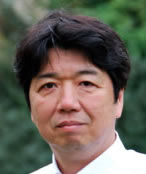
Professor, Graduate School of Advanced Integrated Studies in Human Survivability (GSAIS), Kyoto University
He graduated Department of Physics, University of Tokyo. He has been a physicist, since he joined NTT Basic Research Laboratory. He served as a visiting scholar of University of Notre Dame from 1984 to 1985, and as a guest scientist of IMRA Europe from 1993 to 1998. Since he joined 21st Century Public Policy Institute in 1998, he has investigated science for science and innovation policy. In 2003, he became a professor of Doshisha University. He was a visiting fellow of The University of Cambridge from 2008 to 2009. In 2014, he became a professor of Kyoto University.

